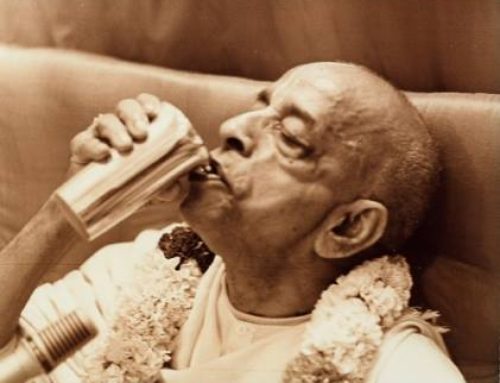Speakar: Srila Prabhupada
Source: Breaking Ground
There is a story about how habit is second nature. There was a thief, and he went on pilgrimage with some friends. So at night when the others were sleeping, because his habit was to steal at night, he got up and was taking someone’s baggage. But then he was thinking, “Oh, I have come to this holy place of pilgrimage, but still I am committing theft by habit. No, I shall not do it.”
So then he took someone’s bag and put it in another’s place, and for the whole night the poor fellow moved the bags of the pilgrims from here to there. But due to his conscience, because he was on a holy pilgrimage, he did not actually take anything. So in the morning when everyone got up, they looked around and said, “Where is my bag? I don’t see it.” And another man says, “I don’t see my bag.” And then someone says, “Oh, there is your bag.” So there was some row, so they thought, “What is the matter? How has it so happened?”
Then the thief rose up and told all of the friends, “My dear gentlemen, I am a thief by occupation, and because I have that habit to steal at night, I couldn’t stop myself. But I thought, “I have come to this holy place, so I won’t do it.’ Therefore I placed one person’s bag in another man’s place. Please excuse me.”
So this is habit. He doesn’t want to, but he has a habit of doing it. He has decided not to commit theft any more, but sometimes he does, habitually. So Kṛṣṇa says that in such conditions, when one who has decided to stop all immoral habits and just take to this process of Kṛṣṇa consciousness, if by chance he does something which is immoral in the face of society, that should not be taken account of. In the next verse Kṛṣṇa says, kṣipraṁ bhavati dharmātmā: because he has dovetailed himself in Kṛṣṇa consciousness, it is sure that he will be saintly very soon.


